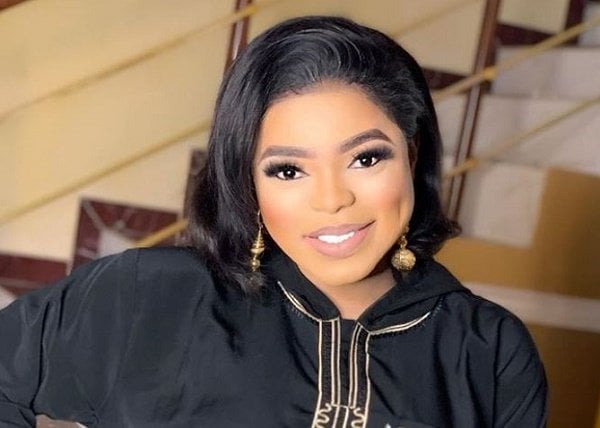PREMIUM TIMES
On Saturday, 13 April, a group of 18 masked persons dressed in army camouflage, armed with rifles, charms and Oodua Nation flags attempted to take over the Oyo State House of Assembly and Government Secretariat to proclaim the emergence of a Yoruba Nation. They caused some commotion as they insisted on hoisting a flag, but the rag-tag team of insurrectionists were soon overpowered and arrested by officers of the Nigerian Police Command. Well, not quite. They resisted the police but when soldiers from the Second Division of the Nigerian Army arrived on the scene, the Oodua boys took to their heels. Cowards! They should have waited and argued with the soldiers over the integrity and sovereignty of Nigeria. But the twist in the tale turned out to be the appearance of a woman – Modupe Onitiri Abiola – on several platforms, who endorsed the action of the Oodua 18 and proclaimed that a Democratic Republic of Yoruba had emerged with effect from 13 April. The additional twist in the tale was that the woman introduced herself as a widow of Chief MKO Abiola, the undeclared winner of the 12 June, 1993 presidential election, pillar of sports in Africa, entrepreneur, philanthropist and a martyr of democracy.
Nigerians are probably used to persons, groups – ethnic and socio-cultural – threatening to leave Nigeria and declare their own separate country, to – as they argue – correct the mistake of 1914, so-called, or to seek meaning in a new association. After all, in February 1966, Isaac Adaka Boro, an Ijaw ethnic minority rights activist, formed a group known as the Niger Delta Volunteer Force and declared the formation of a Niger Delta Republic. He and his group fought the Nigerian Forces for 12 days before they were overwhelmed, arrested, tried for treason and thrown into jail. This was the first major rebellion against the Nigerian state. The same year, following the Unification Decree No 34 of the Aguiyi Ironsi military government, the people of Northern Nigeria were so dissatisfied with the turn of events in Nigeria that they openly talked about “Araba” – meaning “let us separate.” In January 1966, there had been a military coup which resulted in the death of Northern leaders and others, notably Prime Minister Tafawa Balewa; Sir Ahmadu Bello, Northern Region premier; Chief Ladoke Akintola, premier of the Western Region; and Festus Okotie-Eboh, minister of Finance.
The coup was led by Kaduna Nzeogwu, an Igbo man, and with that collapse of Nigeria’s First Republic, the new leader was also an Igbo man, General Thomas Umunnakwe Aguiyi-Ironsi, the first military head of state of Nigeria. The North had wanted to separate but eventually there was a countercoup in July 1966, which ousted the Ironsi regime, further widening the centrifugal ethnic fissures in Nigeria. In July 1967, the Igbos fought back. Led by Lt. Col. Chukwuemeka Odimegwu Ojukwu, they declared the Republic of Biafra, meaning they were determined to secede from Nigeria. The war that ensued lasted three years – 6 July 1967 – 15 January 1970. That was 54 years ago, but there are signs that the civil war in Nigeria has not really ended. Nigeria took a turn for the worse. The rain began to beat us.
The separatist spirit would again show up on 22 April, 1990, in the coup speech by Major Gideon Orkar, whose plan, as announced, included the excision of five Northern states of Bauchi, Borno, Katsina, Kano and Sokoto from Nigeria. The Orkar group was convinced that the people from these five states were the problem with Nigeria and they should just get out and form their own country. Thus, Orkar and 41 of his colleagues wanted to seize government and re-draw the map of Nigeria. They were captured by government troops, charged for treason, convicted, and executed by firing squad. However, the fact that treason attracts the punishment of death has not deterred those who think that Nigeria must be dismembered, or that the map must be re-drawn. The year 2012 witnessed the emergence of a separatist, nativist, Igbo nationalist, anti-Fulani, neo-Biafra group called the Indigenous People Of Biafra (IPOB), which aims to restore and actualise the dream of Biafra. IPOB is led by Mazi Nnamdi Kanu, who has been facing trial for treasonable felony since 2016. Before IPOB, there was also Radio Biafra established by Mazi Kanu in 2009, there was Movement for the Actualisation of the Sovereign State of Biafra led by Ralph Uwazurike (1999,) and there was the Biafra Zionist Movement (BZM) led by Benjamin Igwe Onwuka (2012). There have also been talks about the possibility of an Arewa Reepublic.



